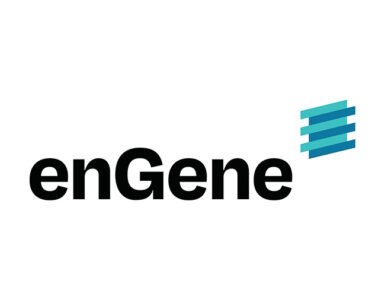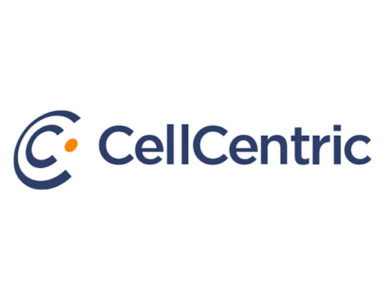
Profound Medical (NASDAQ:PROF; TSX:PRN) announced the appointment of Tom Tamberrino as chief commercial officer (CCO). Abbey Goodman, the current CCO, will now lead strategic partnerships and continue to report to CEO and chairman, Arun Menawat, Ph.D.
Mr. Tamberrino’s appointment comes as Profound prepares for the permanent CPT Category 1 codes for its TULSA procedure going into effect in January 2025.
Dr. Menawat, who previously served as chairman, president, and CEO of NOVADAQ Technologies, personally recruited Mr. Tamberrino, who held the role of vice president of sales and marketing at NOVADAQ during Dr. Menawat’s tenure.
With an extensive background in sales and marketing leadership, business development, and executive management within the healthcare industry, Mr. Tamberrino most recently pursued entrepreneurial ventures outside of the medical technology sector.
While at NOVADAQ, Mr. Tamberrino helped to establish the company as the market leader in near infrared fluorescence imaging for visualization of blood flow and tissue perfusion, before, during and after surgical procedures. He built a direct U.S. sales and marketing organization driving an annual revenue run rate of approximately $27 million at the end of 2012, to more than $82 million in annualized revenues when, in 2017, NOVADAQ was acquired by Stryker (NYSE:SYK) for approximately $701 million. Mr. Tamberrino remained until 2018 to assist with the integration of the NOVADAQ business into the Stryker organization. Earlier in his career, he held progressive sales management positions with LifeCell (now an Acelity company), most recently serving as Area Director, where he managed a 50-person sales team across the Northeast of the United States and Canada that marketed LifeCell’s regenerative tissue matrices alongside NOVADAQ’s intraoperative perfusion assessment technology for complex trauma, cancer and general surgery cases to colorectal, general, plastic, transplant and trauma surgeons.
“This is actually the second time that I have personally recruited Tom to build and manage the sales organizations of companies led by me as CEO – first from LifeCell to NOVADAQ and now to Profound,” said Dr. Menawat. “The permanent CPT Category 1 codes for TULSA going into effect at the beginning of 2025 represent an anticipated major inflection point for our business. Now is the perfect time to bring in a sales and marketing executive that I have worked with closely in the past; and one who has earned my trust, respect and most importantly, confidence, in the process. I am honored and excited to welcome Tom to Profound.”
Reflecting on his decision to join Profound, Mr. Tamberrino commented, “As naturally inclined as I was to be warmly receptive to Arun’s overtures to join him at Profound, I wanted to be certain that I would be able to hit the ground running. And, like many men that I had spoken to, I naturally wondered why any prostate disease patient who was presented with an informed choice of available treatment options would not choose TULSA given its ability to effectively, safely and efficiently treat an unrivaled variety of prostate cancer and/or benign prostatic hyperplasia (BPH) patients. So, I did a lot of diligence. As a result, I am convinced that widespread adoption of TULSA will be driven mostly by increasing patient and physician awareness, and by ensuring TULSA can be readily accessed in the most suitable settings, including hospitals, ASCs and private practice offices/facilities. Importantly, with reimbursement now on the horizon, I was not able to identify any remaining major obstacles to widespread adoption of TULSA-PRO. I am looking forward to working with Arun, Abbey, and the rest of the Profound team to maximize the tremendous opportunity we see ahead.”
Commenting on Ms. Goodman’s transition to leading Profound’s strategic partnerships, Dr. Menawat said, “Over the past several months, Abbey has helped lead the charge as we have begun building closer relationships with MR and other medical technology companies to help create a total diagnostic and interventional MRI solution to support the Modern Treatment Pathway that allows for more accurate and precise prostate disease diagnosis, treatment with the TULSA Procedure, and post-treatment follow-up. I am excited that Abbey has accepted this newly created and important role, and look forward to her continuing contributions to realizing this shared MR-centric vision.”
Profound is commercializing TULSA-PRO, a technology that combines real-time MRI, robotically-driven transurethral ultrasound and closed-loop temperature feedback control. The TULSA procedure, performed using the TULSA-PRO system, has the potential of becoming a mainstream treatment modality across the entire prostate disease spectrum; ranging from low-, intermediate-, or high-risk prostate cancer; to hybrid patients suffering from both prostate cancer and benign prostatic hyperplasia (BPH); to men with BPH only; and also, to patients requiring salvage therapy for radio-recurrent localized prostate cancer.
TULSA employs real-time MR guidance for pixel-by-pixel precision to preserve prostate disease patients’ urinary continence and sexual function, while killing the targeted prostate tissue via a precise sound absorption technology that gently heats it to kill temperature (55-57°C). TULSA is an incision- and radiation-free “one-and-done” procedure performed in a single session that takes a few hours. Virtually all prostate shapes and sizes can be safely, effectively, and efficiently treated with TULSA. There is no bleeding associated with the procedure; no hospital stay is required; and most TULSA patients report quick recovery to their normal routine. TULSA-PRO is CE marked, Health Canada approved, and 510(k) cleared by the U.S. FDA.
In July 2024, U.S. Centers for Medicare and Medicaid Services (CMS) issued its proposed rules establishing, for the first time, a Category 1 CPT code for the TULSA procedure, effective January 1, 2025.






